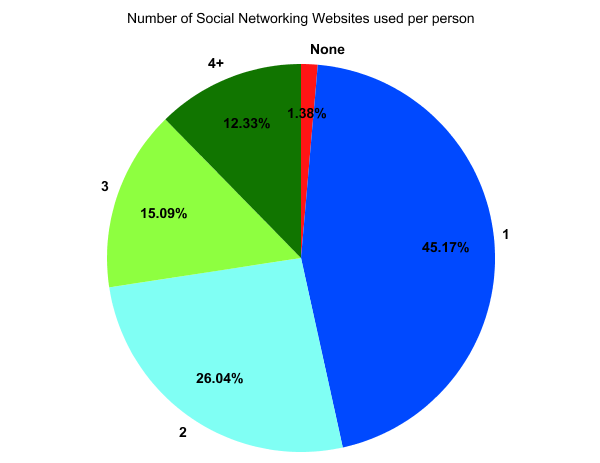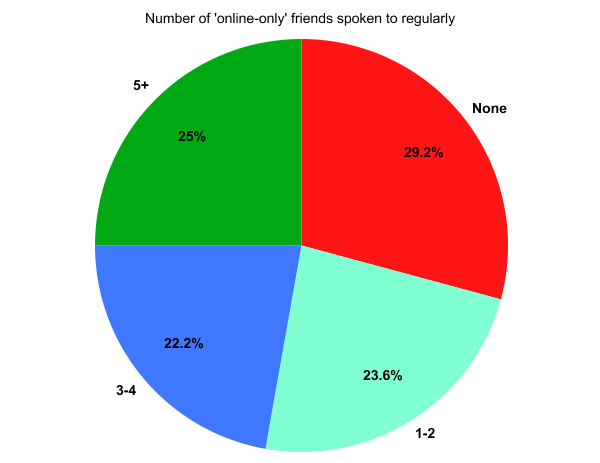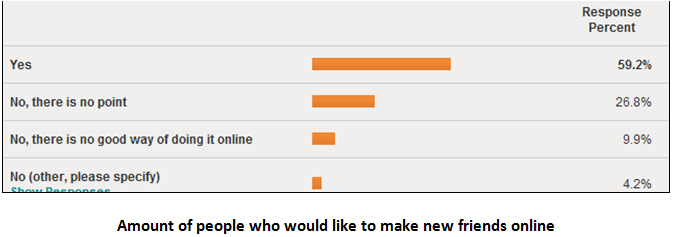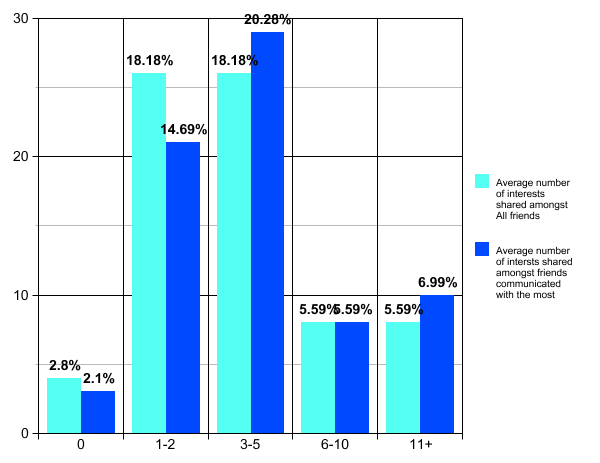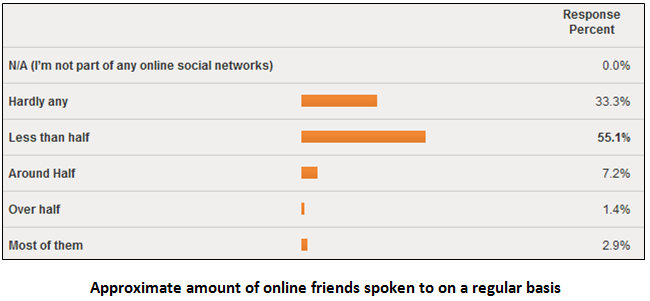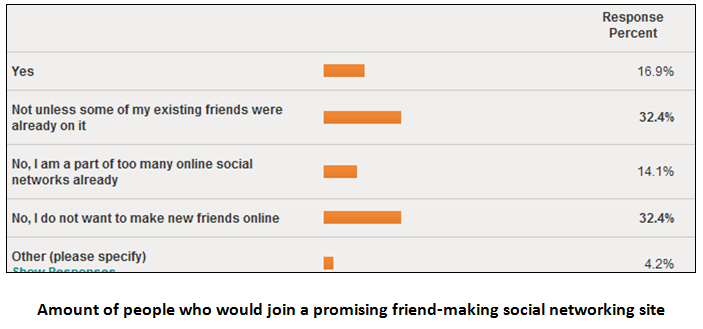To help better understand our target audience, and to better design Hive’s features, we have conducted a survey on a group of 71 young adults. Below are the results and our analysis:
People prefer to use fewer online social networking sites because they all seem to offer the same thing
We found that 45% of respondents use only one social networking website on a regular basis, with fewer and fewer people using higher amounts of sites.
We also found that of the people who did not use more than one social networking site regularly, the majority said they did not because they thought that most of the sites available, did similar things, and so they invested most of their time on a single one. A significant amount also thought that using more than one site regularly would be too many to keep track of. This suggests that many people have difficulty maintaining too many relationships, and want them all to be in a single site for them to manage easily.
From the results so far, it seems that Hive needs to promote the fact that it is for a different purpose than sites such as Facebook, so that people feel it would be worth their time to use Hive alongside their other social networking sites, and to use it often.
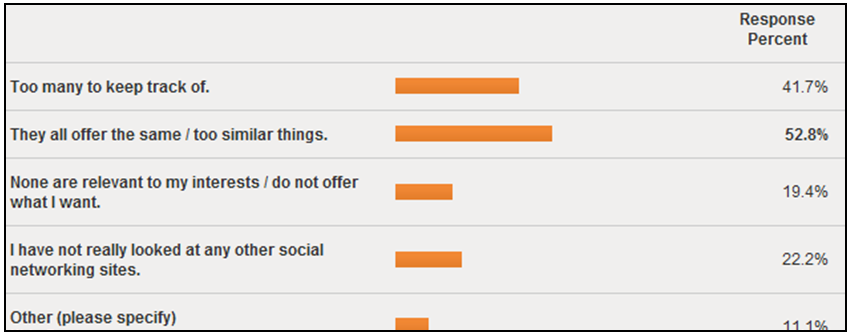 Why People do not use more than one social networking site regularly
Why People do not use more than one social networking site regularly
Almost a third of respondents either do not have or hardly speak to “online-only” friends
It seems that a significant amount of people do not have online-only friends, or rarely speak to them, preferring only to communicate online with people they know in real life. These people avoid speaking to people they have not met in real life for a number of reasons. Below are some of the most common responses:
- “…find the whole idea a bit creepy to be honest”,
- “…prefer to meet the real person before I decide if I wanna talk to that person or not”
- “I don’t want to communicate with someone I haven’t met before”
- “It’s hard to keep in touch with people without a solid relationship with them”
- “I don’t have time”
People seem to either want to meet others in real life before communicating online or simply do not have the time for people without a “solid” relationship. The latter can be dealt with – Hive will need to help users build stronger relationships with others. Hive already does this inherently because it helps users find others who have a large amount of interests in common, helping them build relationships by giving them many things to discuss and share with each other. Hive may also need additional features to help users build better relationships with others, and to encourage them to communicate with their online friends more.
Most of those with online-only friends have already or would like to meet them in person
The results show that almost 80% of respondents would like to or have already met their online friends in person. This suggests that a location element would be useful in Hive, i.e. users should be able to input their current town or city in their profile, so that location can be a factor when being recommended potential friends.
Additional features to help users meet up could be implemented in the future, but this would have to be discussed in the future.
People think they have more interests in common with the people they speak most to, but only by a little
The results show that people in general think that they share more interests with the people that they speak to the most. This supports how Hive will connect users – by their interests, i.e. the more interests people have in common with someone, the more they will talk. The results also show that the increase in average interests is very little – around 1-3 interests difference. This may be because the social networks people are a part of (Facebook) is not interest-based, supporting an earlier post “Facebook is not a place of interests”, on this blog.
Average amount of interests people think they share amongst all online friends and online friends they speak the most with
Only around 11% of respondents speak to around half, or over half of their online social network friends regularly
Very few people – only 11.5% of respondents speak to around half or over half of their online friends regularly. This suggests that people add others as friends but hardly speak to any of them. This is something which Hive will try to fix – by creating an environment for the user where all of their friends speak about things which interest the user; increasing the likelihood of them wanting to talk to the people they made friends with.
Only around 50% of respondents would consider joining a promising new social networking site for making friends; the majority of which would only do so if existing friends joined first
A large amount of users would consider joining an online social networking site for making friends such as Hive, but the majority would only do so if their existing friends were already a member. It is therefore a good idea to allow existing users to invite their friends to Hive, either through existing online social networks or via email, perhaps even offer some incentive for the user to do so. Existing users doing this may play a significant role in obtaining new users.
Conclusions
- Hive needs to emphasise how it is different from the more ‘traditional’ social networks, and advertise what it offers the user and how they can benefit from using it – users need to know they are investing their time well; otherwise they will fall back on their primary social network, i.e. Facebook if they feel that keeping up with multiple sites is not worth it.
- Hive needs to encourage people to make friends online, and the value this brings to the users, since many people seem to disregard the idea of the internet being a good platform to make friends. The World Wide Web allows us to communicate with so many people around the world, and people should make the best out of it.
- The results of the survey support the fact that Hive, as an interest-based for making friends, will be something that people will want to use, and encourage people to talk with each other more actively than traditional social networking sites.

